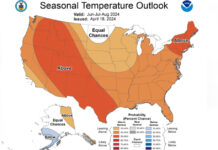Bird Flu is suddenly in the news again. For example:
- Some unlucky fellow in Texas caught bird flu from a cow. (Yes, it has spread to cows.) This is the first case of human transmission in a few years.
- The largest egg producer in the U.S. had to cull almost 2 million chickens earlier this week because of an outbreak of avian influenza in one of its Texas facilities. That represents 3.6 percent of their total flock.
- The Europeans are worried about the spread of bird flu over there.
As a guy who has 20 chickens, I am not worried about getting bird flu. And yes, I walk among them daily, supervise their free range time, open their coop, feed them, water them and give them fresh straw for bedding. The only precaution I take is to remove my boots in the garage and not wear them into the house and tow ash my hands when I come inside. This isn’t to stop bird flu; it is to stop bird poop from ending up in the house.
In the opinion of this prepper, who has no medical training, it is not yet time to worry about bird flu. Monitoring to ensure it doesn’t emerge as a future threat makes more sense.
Bird Flu and the Price of Eggs
If we see continued outbreaks of avian influenza, the largest impact will be more expensive eggs and chicken meat, plus a possible shortage of both. Millions of layers, meaning chickens that lay eggs, are likely to be purged because a few were found with the virus. That will hurt supply. This could carry over to turkeys and other birds as well.
If you go to your local farm store, you can bring home baby chicks and have your own supply of eggs by Labor Day, which is when those chicks mature into hens and start laying eggs. I stopped by Tractor Supply the other day and could hear chicks cheeping as soon as I walked into the store. They had at least 100 chicks for sale. If you can’t raise your own, you can always buy chicken and store it in the freezer or buy canned chicken which has a shelf life of years.
When cows get bird flu—I know, it sounds whacky—they recover in two weeks, but it harms their milk production, which may never recover. If the disease spreads in cattle, we could experience a shortage of dairy products. It is too soon to be sure, but if you are a big consumer of dairy products, keep your eye on the number of cases of bird flu in dairy cattle. In addition to Texas, it is already striking dairy farms in Idaho, Kansa, Michigan, and New Mexico.
Bird Flu in Humans
Although the fellow in Texas had a very mild case and is recovering, avian influenza can be deadly in humans. Of the 800 people who have been infected in the past 20 years, half died as a result. We could see an outbreak that resembles the Spanish Flu from 1918, which was also a novel influenza virus.
Normally, a disease that kills half of its hosts doesn’t spread quickly, but we all know how quickly the flu spreads. In a national outbreak, you could get it from someone at work, or your kids could bring it home from school. A serious outbreak could have a high mortality rate, potentially killing tens of millions in the U.S. But the flu evolves and changes. No one knows when a variation of avian influenza will evolve that could spread to humans and then from human to human, or how deadly that variation would be. We can’t accurately predict when next variation of bird flu that can pass from human to human will arrive, but you can bet the web will be filled with dashboards showing illness and death. Use information like that to decide on how to best keep your family safe.
While I am not worried, it’s always possible that we could be in a period similar to December 2019 when there was talk of a new illness in China but no concrete data. Of course, one case is not a pandemic, but as we saw in 2020, much can change in four or six months. We just have to wait and see. But if bird flu exhibits human-to-human transmission, don’t be complacent.
Here’s a detailed roundup article from April 3 on Bird Flu








